What is Tabata Training?
I’ve received quite a few questions about Tabata training, so I created this post to answer them all in one place. It’s one of my favorite formats to teach because Tabata is such a quick and effective form of exercise. Scroll down to find out: What is Tabata? Get all your questions answered!
A Grilled Dinner
Something about cooking dinner on the grill makes it so more exciting.
Like family pizza night:
Fun in the oven, party on the grill.
After making cinnamon rolls this weekend, the last thing I wanted to do was mess around with yeast and dough – I contemplated a brown rice tortilla for my pizza crust- but when I saw that the Bob’s Red Mill dough only took 20 minutes to rise, I was ok with that. Something about bread-making, yeast and dough is intimidating, even though it really is NBD. I froze half the dough for our next pizza night, and the Pilot’s dough was pre-made by the lovely deli section at Sunflower Market.
I oiled and garlicked the dough,
added toppings, (sauce, mushrooms, peppers, onions, tomatoes, oregano, olives, anchovies and the sad last little bit of goat cheese for me), and the Pilot grilled away.
I enjoyed mine with a simple green salad
and it was pizza perfection. (Get more grilled pizza ideas!)
What Is Tabata Training?
Tabata is a form of high-intensity interval training, based on a 1996 study by Dr. Izumi Tabata. Tabata is a perfect cardio component to bootcamp classes and a nice way to effectively spice up your workout routines, as it doesn’t require much time at all.
The Tabata Study
In the study, they observed seven participants, who first followed a 6-week moderate cardio endurance training (70% VO2max) for 60 minutes each day, 5 days per week. The anaerobic capacity didn’t increase significantly.
To compare, seven participants then followed a routine of 7-8 rounds of 20 seconds on (170% of VO2max – really freaking intense work) with 10 seconds of rest, 5 days per week for 6 weeks. This group gained anaerobic capacity benefits, and only worked out for 2 hours total over the course of the study, compared to 30 hours of exercise from the steady state group.
The aerobic systems of both groups increased by a small amount, but the unique thing about this study is that it shows that just because aerobic capacity slightly increased in both groups, the high-intensity interval training could improve both aerobic and anaerobic systems.
So of course, any type of cardio is beneficial (strengthening the heart, burning calories, fat, improving circulation, reducing stress and risk for diabetes, and so on), but including a form of high-intensity training into your workout routine is a great way to increase your performance and calorie-burning potential.
Little nugget of gold: lower-impact activities burn more calories during the activity, but less afterwards. High-intensity workouts burn less during the actual workout because they’re shorter in duration, but the resting metabolic rate is higher in the 24 hours after the workout. High afterburn!
How Do I Do Tabata?
Tabata intervals are set time periods of work and rest: 20 seconds on, 10 seconds off, repeat 8 times for a total of 4 minutes.
The convenient thing about Tabata is that you can do it anywhere – you don’t necessarily have to take a class (even though they’re popping up at gyms everywhere) to reap the benefits.
If it’s your first time trying Tabata, or any type of interval or cardio training, I’d definitely get the ok from a doc first and start out with less intervals. Try adding in 2 sets at the beginning or end of your next cardio sesh and build on from there, depending on how you feel.
Here’s How to Add Tabata to Your Workout Routine
-Warm up for about 3-5 minutes, complete the Tabata intervals (20/10 x 8: 4 minutes), cool down and stretch. That’s it!
-Some of my favorite methods (keep in mind that you want to choose an exercise that you can go 170% VO2max aka balls to the wall for the entire 20 seconds):
Sprinting
Elliptical – I like the crank the resistance and speed for this one
Swimming
Bike
Stairclimber
Jump rope
Plyometric exercises – be cautious which ones you choose, for safety factors and ability to quickly increase and decrease intensity. For example, I’d do jumping lunges or jump squats, but maybe not box jumps or something else I’d be guaranteed to eat the floor with.
Tips for Tabata Workouts
-As with any type of high-intensity training, I wouldn’t do this on consecutive days. Alternate days, 2-3 times a week max. Remember, your heart is your most important muscle and, just like all of our other muscles, it needs rest, recovery and variation, too. <3
-Its also fun to throw Tabata intervals in between strength-training exercises to switch things up and increase the calorie burn. Here’s a sample training schedule:
Sunday: OFF
Monday: Tabata mixed with strength training (total body or upper body)
Tuesday: Steady state cardio
Wednesday: Tabata mixed with strength training (total body or lower body)
Thursday: OFF
Friday: yoga/flexibility
Saturday: Steady state and/or Tabata
-Check out my Tabata workouts on YouTube for more ideas, and subscribe to my channel for updates!
When was the last time you Tabata-ed? If you’re a newbie to intervals, don’t be intimidated. Check with your doc and take it easy until you feel comfortable adding in more interval rounds and increasing your intensity. As always, if you’re injured or have other health considerations, honor your body.
It’s workout time over here 🙂
Have a great day!
xoxo
Gina


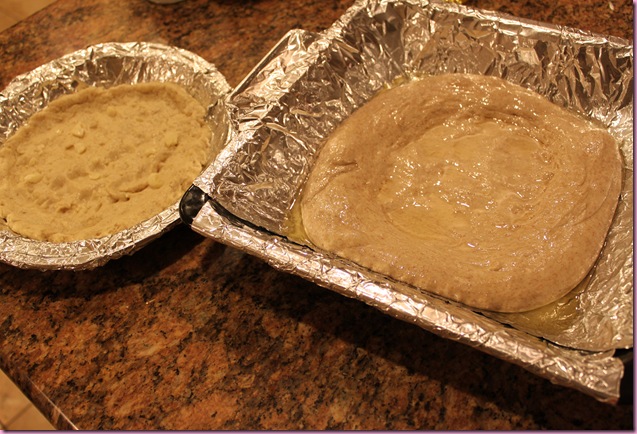

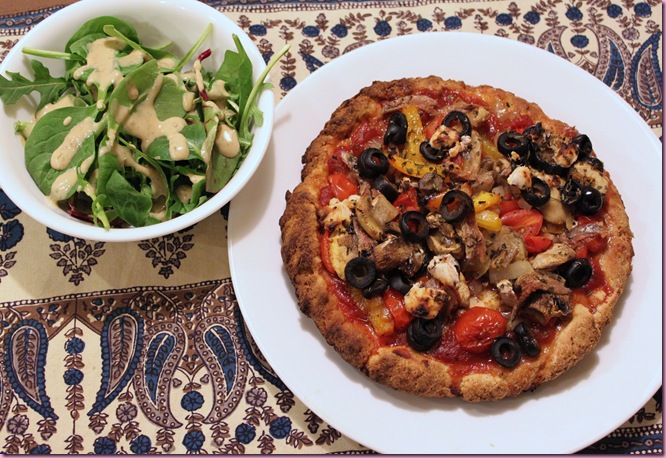
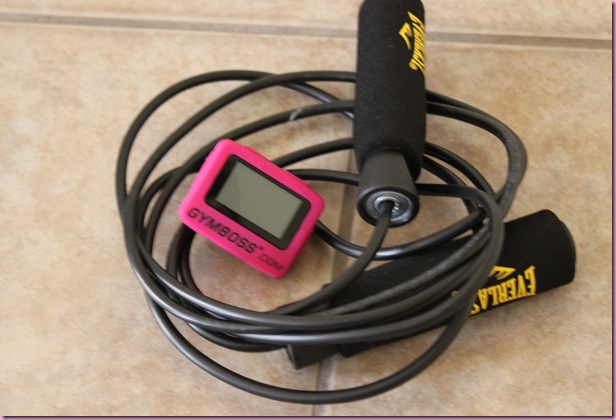

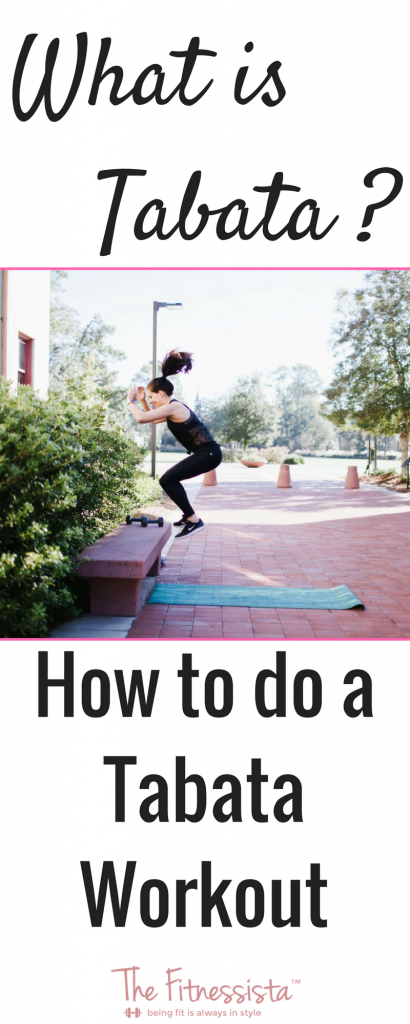



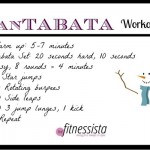
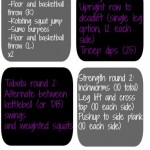










I haven’t been on this post in a while! I think since you had your second child! The crust on that pizza looked so puffy and light! Need to try it!
Forgot my
I love tabata workouts! 🙂
Great post! I’m going to try tabata and that delicious looking pizza 🙂